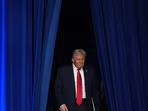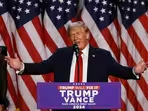View: How governments can truly blunt the brute power of foreign-owned social media companies
Operating social media platforms in third-party countries brings forth significant ramifications, especially in states that lack proper digital policy. Firstly, regardless of whether firms can be held accountable, social media plays a pivotal role in the spread of propaganda, misinformation, and extremist views.

This was amply clear in the case of Brazil, where social media, particularly WhatsApp and X (formerly Twitter), is accused of being used as a means of political mobilisation. During the 2018 elections and the Bolsonaro reign that followed, X was ablaze with far-right propaganda and hoaxes to boost support for the former Brazilian president. Matters came to a head with the attack on Brazil’s Congress in January 2023, a series of events coordinated largely through social media through coded messages, tactical and strategic advice, as well as monetary promises.
Social media giants are also seen to take advantage of the political status of nations to gain profit. This is observed through the countless election hacks and data breaches across the world, the most famous being the harvesting and use of personal data by Facebook and Cambridge Analytica.
Whether the data was used to influence the US election outcomes (2016) or the Brexit referendum is still unknown for sure, but access to qualitatively rich data such as psychological profiles of users is immensely profitable. Such data can be used to tailor ads and preferences in a manner that takes advantage of users, selling them ideas and products with a significant financial gain to social media giants.
Both these threats are also closely connected with a firm’s, and moreover, a nation’s, ability to exercise and leverage soft power. Access to third-party data is a powerful tool in leveraging influence both monetarily and psychologically.
Moreover, the nature of these platforms allowing for political mobilisation further pushes soft power influences from an ideological or abstract realm into reality with physical violence and real-world consequences governed outside the arena of digital policy.
Potential Policy Solutions
As a result of these threats, nations have been becoming increasingly vigilant in policing social media platforms originating and owned by foreign nations for mistreating local laws. The main ways in which these misdemeanours have been countered up until now include absolute bans, monetary fines, and the editing or creation of digital policy to amend the terms and conditions with which the platforms can be utilised.
The use of the absolute ban has been implemented in short-term intervals in Brazil for various social media companies while they are given the chance to amend their user and platform policies. Examples: X most recently and Telegram back in 2023.
However, the use of long-term permanent bans has also been effected. When the relations with China deteriorated in mid-2020, India banned TikTok. That ban is still in place. The belief is that the site propagates violence and is too instrumental as a security breach for India to entertain when in such close proximity with a volatile rival such as China. The loss of TikTok has not decreased social media use across India, nor has it particularly upset the public; hence, the ban can be labelled successful in some regard.
Yet, the soft power pull China has within India by controlling other key tech companies remains.
Monetary fines are also becoming increasingly popular. Just over a month ago, Brazil sanctioned a 5 million reais (£920,000) fine on X. This followed X’s attempt to sidestep the temporary ban placed while they were asked to comply with national regulations. This immediate regulatory consequence to disobedience is an effective way for nations to force companies into playing by the rules of the game even when they believe they can bypass them.
Brazil also imposed fines on citizens who attempted to use the platform through services like virtual private networks (VPNs), which added to the pressure on X to comply. Ultimately, X has agreed to pay the fines and change on-site conditions in order to lift the ban, which indicates some effectiveness. Still, it is unknown whether such tactics will work to deter future non-compliance.
Nevertheless, the most forward-thinking approach is to create digital policy that is robust and comprehensive in an age when technology knows no bounds. There are few examples of effective digital policy globally as it is still a developing arena. Further, digital policy can toe the line of censorship, which is both looked down upon and perhaps unachievable in most democratic countries today.
When considering how the risk of political threat can be mitigated from social media, the only current example to turn to is the Digital Services Act, which has been enacted in the EU. The Act provides extensive policy to combat misinformation and restrict data usage across all marketplaces, social networks, content-sharing platforms, app stores, and online travel/accommodation platforms.
It looks into protecting citizens by regulating law for providers and businesses across the region to ensure democratic control and mitigate systemic risks. While this may seem holistic, given its new status, whether such policy stands the test of time is yet to be seen.
What Now?
While it is tricky to understand how to govern the digital space given its volatility, abstraction, and propensity to change, it falls upon governments to protect and enrich the lives of their citizens, and suspicion against foreign entities is a legitimate concern for state sovereignty. Perhaps the best solution is an absolute ban.
However, given the globalised state of economics and politics today, it is unlikely such bans can be put in place effectively by most nations. The only real solution is to create digital policies regarding cybersecurity that are harsh, but flexible, and offer severe consequences in court to curtail the power of social media giants. Governments across the world face a tough challenge in making these decisions, yet the urgency for a solution only grows.
Aditi Someshwar is a student. The views are personal.
Disclaimer: The copyright of this article belongs to the original author. Reposting this article is solely for the purpose of information dissemination and does not constitute any investment advice. If there is any infringement, please contact us immediately. We will make corrections or deletions as necessary. Thank you.
Title:View: How governments can truly blunt the brute power of foreign-owned social media companies
Url:https://www.investsfocus.com









